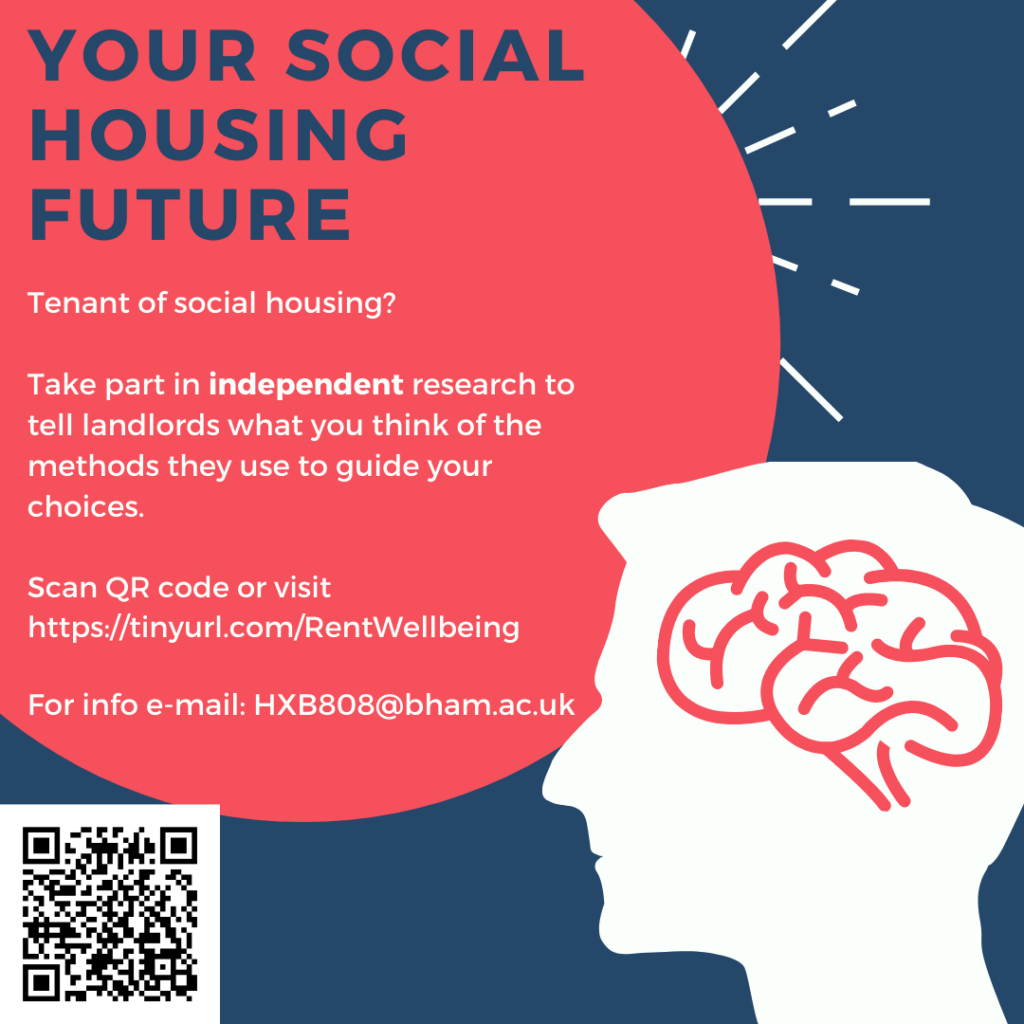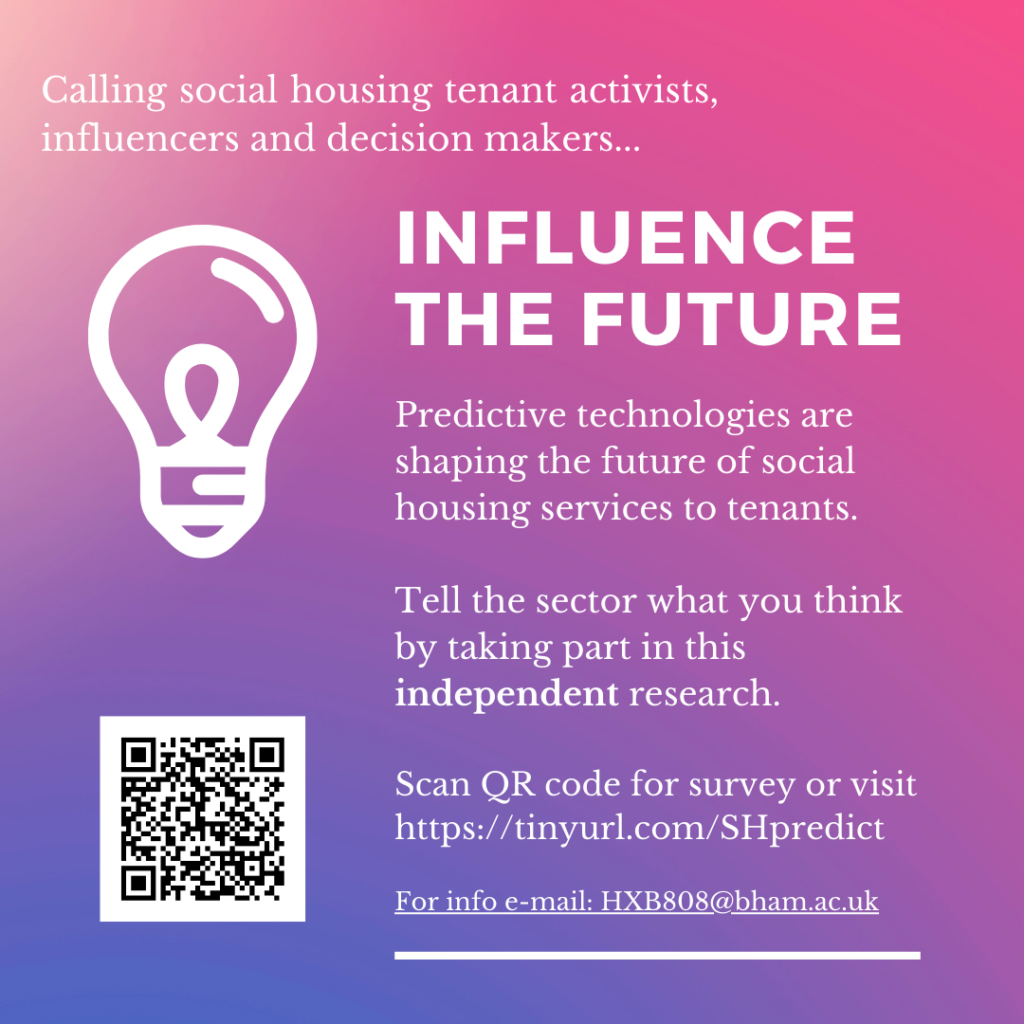
Social landlords provide (or should provide) a safe and secure place that you can call and make your home. Built around this core function are a broad range of services for tenants. Some of these are obvious, such as repairs and rent collection. Others less so, such as wellbeing programmes and community development initiatives.
Tenants of social housing are often asked by landlords how they experience landlord provided services. They are rarely, if at all asked about the how of these services. The how of service delivery has changed over the past 10 years. New approaches are used that leverage how human beings think. Also new technologies make complex and expensive approaches associated with tech giants such as Google and Amazon appealing to social landlords. Landlords are keen to use these methods as they are seen as more affordable, as better for tenants as they allow for service personalisation and they are seen as ‘the way’ of delivering the services of today. Little time is taken to reflect on whether these assumptions are true and what these changes may mean for tenants and landlords in the long-term.
Tenants and landlords need to stop and reflect
A key point to reflect on is are these new approaches a good fit for social housing and for tenants? Many of these new methods are popular in the private sectors, particularly digital service sectors. Yet social housing is different. We need to ask whether the methods used in those worlds are right for ours. Whether they fit, and if they help us meet our social purpose.
Another challenge is an ethical one. Landlords have a tendency to measure changes to services by evaluating the immediate impact and focussing on the effect – has the desired change occurred? There is often a lack of focus on long-term impact, and whether the desired effects, and the means of obtaining those effects, align with what tenants want. Do the means justify the ends? Who determines what the ends should be? Are there other approaches that might better meet the wanted effects of both tenants and landlords?
A final point worth mentioning here is the assumption of inevitability. Technology and scientific innovations are often framed this way. They are how things are now and we just need to adapt. We seem to forget that these technologies and innovations are tools, they are not a destiny. We need to reflect on the ‘if and how’ we use these tools and ensure that humans are at the heart of progress and that we are moving towards a place we want to go.
I am a tenant of social housing what can I do?
It would be a great help if you completed one of two (or both!) independent surveys about the new approaches shaping social housing services. You will be entered into a £25 prize draw per survey completed.
The first survey, ‘Your Social Housing Future’ outlines scenarios about how some of these new approaches are shaping current services, specifically around rent collection and wellbeing programmes. The second survey ‘Influence the Future’ is aimed at involved and activist tenants, although any tenant of social housing is welcome to fill it in. It focusses on the use of a method called behavioural segmentation that needs a bit of explaining before questions can be answered – this is the main reason why it sits as a separate survey.
This is the first research to ask tenants for their opinions on these new ways of delivering services to tenants. The anonymised findings will be used to contribute to academic research, and also a findings report to the sector. The aim is to ensure tenants influence the future of services that are ultimately supposed to benefit them.
Questions? E-mail the researcher, Hannah at HXB808@bham.ac.uk
The surveys can be found here:
Survey 1: https://tinyurl.com/RentWellbeing

Survey 2: https://tinyurl.com/SHpredict




